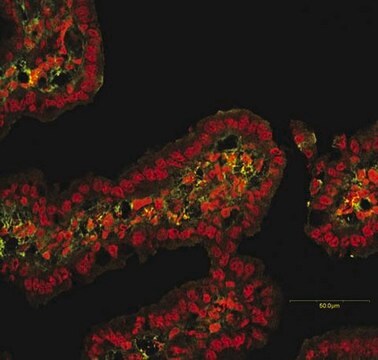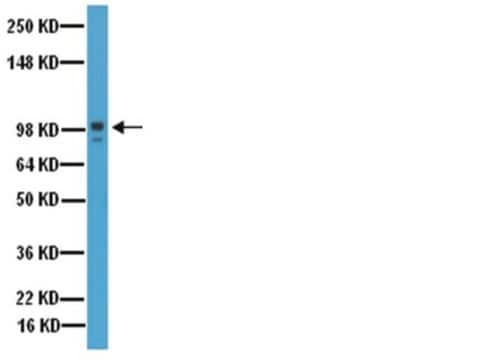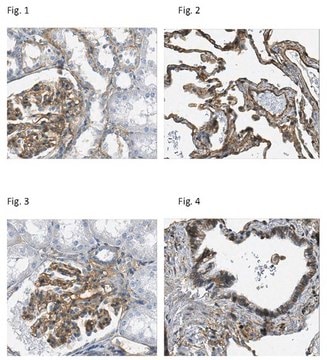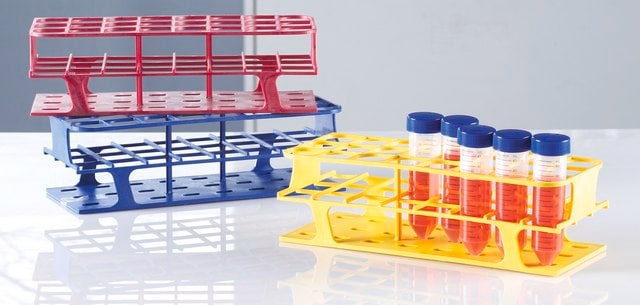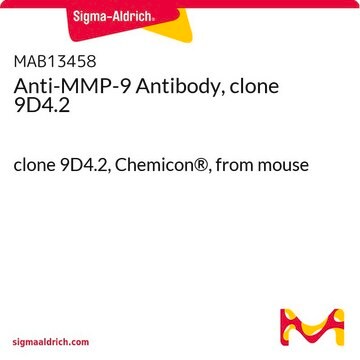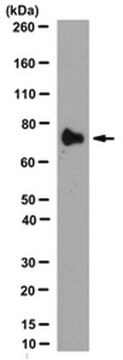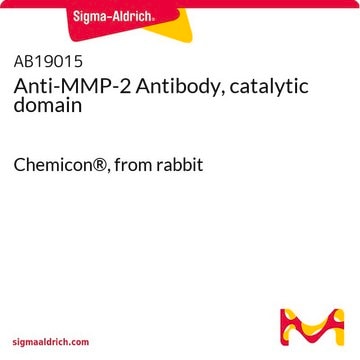MAB13458
Anti-MMP-9 Antibody, clone 9D4.2
clone 9D4.2, Chemicon®, from mouse
Synonym(s):
Gelatinase B, 92 kDa Type IV Collagenase
About This Item
Recommended Products
biological source
mouse
Quality Level
antibody form
purified immunoglobulin
antibody product type
primary antibodies
clone
9D4.2, monoclonal
species reactivity
human
manufacturer/tradename
Chemicon®
technique(s)
ELISA: suitable
western blot: suitable
isotype
IgG2a
NCBI accession no.
1 of 4
This Item | MABT171 | MABT531 | AB19015 |
|---|---|---|---|
| Gene Information human ... MMP9(4318) | Gene Information human ... MMP9(4318) | Gene Information human ... MMP9(4318) | Gene Information human ... MMP2(4313) |
| species reactivity human | species reactivity human | species reactivity human | species reactivity human, mouse, rat |
| clone 9D4.2, monoclonal | clone 4A3, monoclonal | clone 3D6.3, monoclonal | clone polyclonal |
| antibody form purified immunoglobulin | antibody form purified immunoglobulin | antibody form purified antibody | antibody form purified immunoglobulin |
| isotype IgG2a | isotype IgG1κ | isotype IgG1κ | isotype - |
Specificity
Immunogen
Application
Cell Structure
MMPs & TIMPs
Immunocytochemistry: Not Tested
ELISA: 1:200-1:1000
Immunohistochemistry: Not Tested
Optimal working dilutions must be determined by end user.
Linkage
Physical form
Storage and Stability
Other Notes
Legal Information
Disclaimer
Not finding the right product?
Try our Product Selector Tool.
Storage Class Code
10 - Combustible liquids
WGK
WGK 2
Flash Point(F)
Not applicable
Flash Point(C)
Not applicable
Certificates of Analysis (COA)
Search for Certificates of Analysis (COA) by entering the products Lot/Batch Number. Lot and Batch Numbers can be found on a product’s label following the words ‘Lot’ or ‘Batch’.
Already Own This Product?
Find documentation for the products that you have recently purchased in the Document Library.
Our team of scientists has experience in all areas of research including Life Science, Material Science, Chemical Synthesis, Chromatography, Analytical and many others.
Contact Technical Service